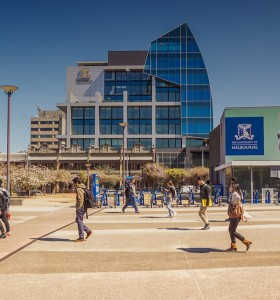Skills needed in Australia
08 February 2016 by News DeskThe most in-demand skills needed in Australia over the next ten years will be in the areas of science, technology, engineering and mathematics.
 The government predicts that over the coming decade 75% of jobs in the fastest-growing industries will need skills and qualifications in these key subjects, known as S.T.E.M.
The government predicts that over the coming decade 75% of jobs in the fastest-growing industries will need skills and qualifications in these key subjects, known as S.T.E.M.
As the jobs market moves away from traditional industries it is affecting both the skills list for migrants and temporary workers and the teaching of students in schools.
To meet this growing demand for new academic and practical skills a major initiative has been launched to ensure educational institutions in Australia have the resources they need.
Darrell Todd, CEO of thinkingaustralia, says:
“This is good news for skilled workers seeking a new life in Australia.
Schools, colleges and universities will need teachers qualified in these S.T.E.M. subjects. And industry will also need the same skills.
Families seeking to migrate to Australia will want to know their children are being taught subjects that will enable them to get a job in this changing environment.”
The National Innovation and Science Agenda is driving change across educational institutions to ensure students get the skills they need for the jobs of tomorrow.
Skills in demand in Australia
Most in-demand skills include ICT, cyber security, science and engineering – with a special focus on females. Right now, only one in 10 engineering graduates in Australia is female. And the government is determined to greatly increase this figure.
Millions of dollars are being spent to support and encourage students in S.T.E.M subjects, with new initiatives aimed at all levels of education from pre-school to university and the wider community.
Support for school students includes online computing challenges, ICT summer schools, and a national ‘Cracking the Code’ competition.
Support for teachers includes tools to help implement the Digital Technologies curriculum; to drive digital literacy and to bring STEM professionals and ICT professionals into the classroom.
Initiatives include new prizes to recognise the STEM efforts of youth and early career research excellence; support for students in international competitions, developing learning tools and science and mathematics resources for early childhood educators.
For more info, go to the Innovation website.


